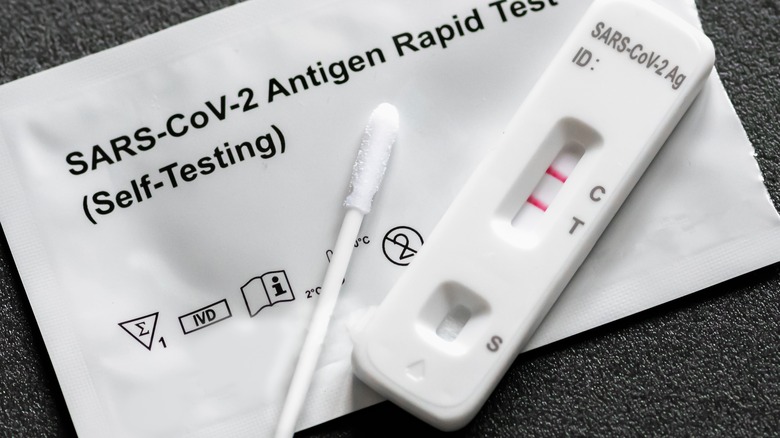New Study Reveals How Moderate Regular Exercise Can Affect Your COVID-19 Risks
The World Health Organization recommends adults aged 18 to 64 get 150 to 300 minutes of moderate exercise each week to prevent cardiovascular disease, cancer, and diabetes. Those who are inactive can have up to a 30% greater risk for death. According to a new study in the British Journal of Sports Medicine, moderate exercise also reduces your risks related to COVID-19.
The meta-analysis combined 16 studies that measured 1.8 million people's level of physical activity and whether or not they were diagnosed with COVID. It also looked at whether or not the participants were hospitalized, had severe illness, or died from COVID-19. Those who engaged in two and a half hours of moderate exercise each week lowered their risk of infection by 11%. Similarly, regular exercisers lowered their risk of being hospitalized for COVID by 36% and their risk of severe illness related to COVID by 44%. The overall risk of death was reduced by 43%.
The benefits of exercise in fighting disease
This study confirms the results of previous research on the disease-fighting power of exercise. A 2022 study in the British Journal of Sports Medicine found that high and moderate physical activity provided strong barriers against COVID-related hospitalization, intensive care unit admission, and the need for a ventilator. Even those who didn't meet the WHO's recommended guidelines for exercise had some protection against severe illness.
Regular exercise can not only help your body fight COVID, but it also can ward off other infections. A 2021 systematic review in Sports Medicine found that physical exercise boosts your immune system and post-vaccination antibodies. Exercise can reduce your risk of getting a community-related infectious disease by 31%.
According to a 2020 study in the Journal of the American Medical Association, the most common comorbidities among 6,000 patients hospitalized for COVID in New York in March 2020 were hypertension, obesity, and diabetes. Exercise can lower your blood pressure (via Mayo Clinic), moderate your weight (via Cleveland Clinic), and manage diabetes (via Harvard Medical School).


